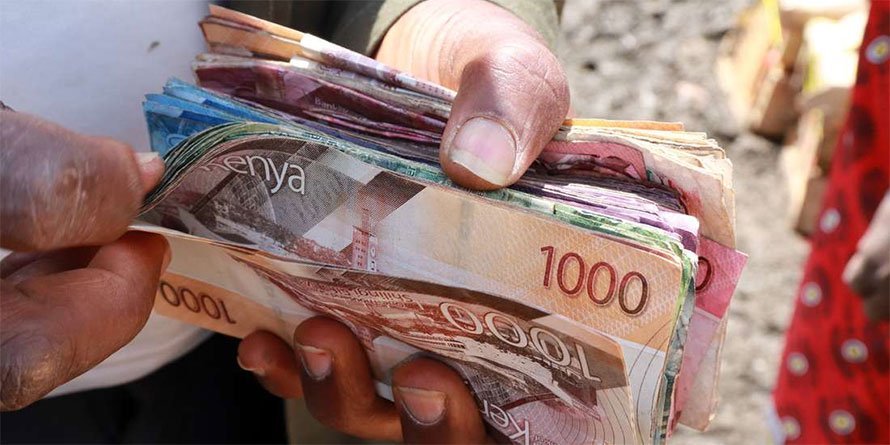The number of bank accounts holding more than Sh100,000 rose by 134,000 last year in the face of uncertainty about jobs and incomes following the Covid-19 pandemic.
The Central Bank of Kenya (CBK) data released Wednesday show that the number of the high-quality accounts increased to 1.69 million in the year to December, reflecting a growth of 8.7 percent.
It was expected that layoffs, job cuts and closure of small businesses due to coronavirus-induced slump would cut the number of bank accounts with more Sh100,000, especially those held by salaried workers.
But the increase in the high quality accounts was the highest in three years and happened in the year consumers and rich firms stockpiled an extra Sh341 billion since the onset of the pandemic in Kenya.
Analysts say the growth of accounts with more than Sh100,000 in a pandemic year was driven by a cut in spending for workers that remained in the job market.
The reduced spending was linked to the uncertainty about jobs and loss of pay, and closure and restriction of service businesses like schools, bars and restaurants, which traditionally drive consumer expenditure.
As a result, household savings rates and banks deposits increased to a new peak.
“Total deposits increased by 13.9 percent from Sh3.6 trillion in December 2019 to Sh4.1 trillion in December 2020. The growth was supported by mobilisation of deposits through agency banking and mobile phones platforms,” said the CBK in the annual banking sector report.
The mounting bank deposits is an indication that wealthy individuals and firms opted to save rather than seek new areas in which to invest.
The savers stockpiles emerged when Kenya imposed tough restrictions, including a dusk-to-dawn curfew, closure of schools and bars that led to the country’s first quarterly economic contraction since the global financial crisis 12 years ago in the three months to June.
The virus-linked reduced economic activity was expected to hurt savings due to reduced cash flow from firms hit by subdued demand and individuals who had lost income.Banks say they also witnessed increased deposits from digital channels after the government introduced various relief measures to encourage cashless payments on mobile phones.The measures included doubling of the daily transaction limits to Sh300,000 on mobile phone transactions and removal of charges on small transactions. Charges on bank deposits from mobile phone wallets were also waived.But the share of bank accounts holding more than Sh100,000 continued to drop, an indicator that lenders are tapping poorer […]
